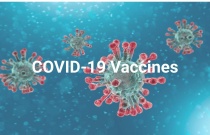Identifying Unhealthy Weight and Risk Factors for Weight Gain
Jamie Blackshaw
This session looks at how to measure excess weight in children and adults, and discusses the causes of obesity including those that may present outside of lifestyle-related obesity.
Introduction to Obesity
Jamie Blackshaw
This session aims to provide you with an overview of overweight and obesity in children and adults in the UK. Obesity is a serious and wide spread public health issue, which has a disproportionate impact on the most deprived families. This session will touch upon the physical, psychological and social issues that can manifest du....
RESPECT Workshop: A Toolkit
The International Confederation of Midwives (ICM)
Respectful maternity care is not a tick list or something that can be fixed by a simple intervention. RMC is a choice and is embedded in our beliefs, attitudes, interactions, service delivery, organisation structures and professional codes. The aim of this RESPECT toolkit and workshop is to help raise awareness about how crucial....
The Role of the Professional Nurse Advocate
Emma Wadey, Sarah Legood
This session will explain the role and function of a professional nurse advocate (PNA) and how the role facilitates the 4 functions of the Advocating for Education and Quality Improvement (A-EQUIP) model. This elearning session is suitable for: - any healthcare professional who wishes to know who and what a PNA is - nurses....
Back Pain With Red Flags
Jon Greenwell
This session discusses the common causes of serious pathology in back pain and the red flags that patients present with that would increase your clinical suspicion. Common signs and symptoms are presented. This session was reviewed by Khyati Bakhai and last updated in January 2020.
Elbow Pain
Satpal Shekhawat
This session provides essential information on the common causes of pain in the elbow, their associated diagnoses and recommended treatment, as well as an overview of elbow anatomy. This session was reviewed by Khyati Bakhai and last updated in January 2022.
New Lung Cancer Diagnosis and Management
Santino Capocci
This session discusses the investigation and initial management of patients with suspected lung cancer, either in clinic or as in-patients, covering the important questions in the history, salient examination points and investigations before a multidisciplinary team discussion.
Sexual Problems: Part 2
Karl Hollows and Shalini Andrews
This session will discuss the links between sexually transmitted infections (STIs) and sexual problems before focusing on some basic aspects of management of patients with these issues.
Sexual Problems: Part 4
David Goldmeier and Ali Mears
This session looks at some definitions of sexual desire and arousal as well as the causes and management of absent or low sexual desire and arousal in women. It covers simple management and arranging onward referral for female patients with these problems.
The Epidemiology of STIs and HIV in the UK and Internationally
Stephanie Migchelsen, Tika Ram, Ian Simms, Gwenda Hughes
This session covers the epidemiology of sexually transmitted infections (STIs) in the United Kingdom.
Mental Health Resilience
Foundation for Professional Development
Currently South Africa is in various stages of lockdown to minimise the spread of COVID-19 and so are many other countries in Africa and worldwide. The nationwide lockdown is necessary to disrupt the chain of transmission of the Corona virus across society but, has serious effects on many aspects of our daily lives, especially,....
COVID-19 Vaccines: Communication and Behaviour Change
Hospital for Sick Children ( SickKids) & GCNM
COVID-19 Vaccines: Communication and Behaviour Change features interactive activities on how to effectively communicate accurate and evidence-based information to address vaccine hesitancy with families, colleagues and communities. Important concepts on vaccines and how they work, efficacy and safety, vaccine schedule and post-a....
The role of rehabilitation in palliative care
Steven Pitman
0.25 Hours
Is there a role for rehabilitation in palliative care? People living with a potentially life limiting illness still have the ability to hope, dream and establish goals. As people approach the end of life, re-setting goals and establishing new found priorities is a constant task and lends itself perfectly to the tasks of rehabi....
Improving Nursing Pain Assessment in Pediatrics
Rebecca Threatt DNP, RN, CHSE
This course is designed to assist the nurse in assessing pediatric patients pain levels. It will assist in developing an understanding of the developmental and environmental factors which influence nociceptive processing perception.
The Place of Infection Prevention, Water, Sanitation & Hygiene in Primary Health Care
Mr. Nkwan Jacob Gobte
This course will go over the places of Infection Prevention, Water, Sanitation & Hygiene in primary Health Care.
COVID-19: Prevention and Health Promotion in the Community
By The Hospital for Sick Children (SickKids) & Ghana College of Nurses and Midwives
COVID-19: Prevention and Health Promotion in the Community will enhance your understanding of prevention and health promotion during the COVID-19 pandemic and beyond. The course features interactive activities on reducing COVID-19 transmission and case studies on the role healthcare workers play in preventing the spread of COVID....
Advocacy at the Sub- National Level
Tciurban Health (The Challenge Initiative’s Knowledge Management Team at Johns Hopkins Center for Communication Programs)
Advocacy at the sub-national level is the process of getting buy-in and support for family planning and adolescent and youth sexual and reproductive health (AYSRH) among leaders and decision makers in discrete areas within the country (including regions, provinces, districts and counties). Such advocacy is especially important i....
A cross-sectional observational study investigating the association between sedges (swamp grasses, Cyperaceae) and the prevalence of immature malaria vectors in aquatic habitats along the shore of Lake Victoria, western Kenya
Getachew E. Bokore,Paul Ouma,Patrick O. Onyango,Tullu Bukhari,Ulrike Fillinger
Malaria, despite increased control efforts, is still among the leading human diseases in Africa. In 2018, 213 million people were infected and 380,000 died. With growing physiological and behavioural resistance of malaria vectors to insecticides. Malaria vector mosquitoes lay their eggs in standing water and grass-like (graminoi....
Children and adolescents on anti-retroviral therapy in Bulawayo, Zimbabwe: How many are virally suppressed by month six?
Silungile Moyo,Ronald Thulani Ncube,Hemant Deepak Shewade,Solwayo Ngwenya,Wedu Ndebele,Kudakwashe Collin Takarinda,Janet Dzangare,Tafadzwa Priscilla Goverwa-Sibanda,Tsitsi Apollo
In 2014, the Joint United Nations Programme HIV/AIDS (UNAIDS) announced ambitious new global 90-90-90 fast-track HIV targets for 2020. Zimbabwe is disproportionately affected by HIV. In 2017, 1.4 million people were living with HIV, with 5.8% being children 0–14 yearsn
Molecular characterization of Pseudomonas aeruginosa isolates from Sudanese patients: A cross-sectional study
Reem H. Amoon,Amna H. Abdallha,Ahmed Osman Sharif,Ehssan H. Moglad,Hisham N. Altyb,Salaheldein G. Elzaki,Mohamed A. Salih
is a gram-negative bacterium that is found widely in the environment and engages in various forms of interactions with eukaryotic host organisms. It is an opportunistic pathogen that is widely spread in humans, giving rise to a broad spectrum of infections in community and healthcare facilities. Sequencing of 16S rRNA worldwide....
Trends in fertility preference implementation among selected Eastern African countries
Vincent Otieno,Alfred Agwanda Otieno,Anne Khasakhala
Over the last decade, there has been considerable debate among scholars on fertility transition in Africa. Two conclusions emerge: slow pace of decline (. Despite these conclusions, there are also emergent exceptions, such as Rwanda, Ethiopia, Malawi (. Kenyan fertility began to rapidly decline in the 1980s, followed by a stall....
Case Report: Cerebral venous thrombosis revealing celiac disease
Romdhane Wiem,Arfa Sondess,Chelly Jihene,Jomaa Olfa,Hammami Sonia,Hmida Karima,El Arbi Fatma,Berriche Olfa
Celiac disease (CD) is an autoimmune enteropathy resulting from intolerance of an individual genetically predisposed to gluten. It affects 0.6–1.0% of the world population.. Among the hematologic abnormalities, venous thromboembolic disease (VTE) has been reported in the literature, with a 25% higher risk in patients with CD com....



















